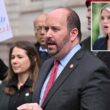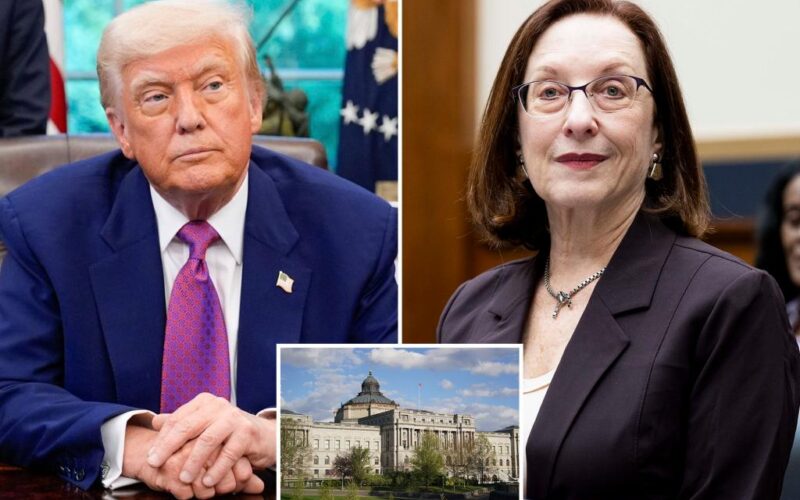President Donald Trump fired the nation’s top copyright official — a move critics say threatens the independence of the US Copyright Office and could upend efforts to regulate artificial intelligence companies’ use of protected material.
Shira Perlmutter, who has served as Register of Copyrights since 2020, was informed Saturday afternoon that her employment had been “terminated,” according to internal communications from the Library of Congress reviewed by Politico.
Her dismissal comes just two days after the White House also fired Librarian of Congress Carla Hayden, the official responsible for appointing and overseeing the Copyright Office.
Hayden, who was confirmed by the Senate in 2016 for a 10-year term, had appointed Perlmutter.
Neither dismissal came with a formal explanation, but lawmakers are already drawing connections between Perlmutter’s ousting and a recent Copyright Office report that questioned the legality of how artificial intelligence companies use copyrighted content to train generative models — a core business issue for Elon Musk, a longtime Trump ally.
“It is no coincidence [Trump] acted less than a day after [Perlmutter] refused to rubber-stamp Elon Musk’s efforts to mine troves of copyrighted works to train AI models,” said Rep. Joe Morelle (D-N.Y.), the ranking Democrat on the House Administration Committee, which has oversight of the Library of Congress and the Copyright Office.
Perlmutter’s office had just released a detailed report on copyright and artificial intelligence, the third installment in an ongoing series examining the legal and economic implications of AI-generated content.
While the report stopped short of recommending immediate regulatory action, it cast doubt on the sweeping “fair use” defenses many AI firms rely on to justify scraping copyrighted materials.
“But making commercial use of vast troves of copyrighted works to produce expressive content that competes with them in existing markets, especially where this is accomplished through illegal access, goes beyond established fair use boundaries,” the report stated.
Though the report encouraged the development of licensing markets and floated ideas like extended collective licensing to address gaps, it warned against premature government intervention — a stance that may not align with the priorities of tech moguls seeking fewer legal roadblocks.
Morelle accused the Trump administration of overstepping its constitutional boundaries.
“This action once again tramples on Congress’s Article One authority and throws a trillion-dollar industry into chaos,” he said. “When will my Republican colleagues decide enough is enough?”
The White House has not responded to requests for comment.
Musk, who helped launch OpenAI and now leads the rival xAI (which is merging with X, formerly Twitter), recently backed a call by Jack Dorsey to “delete all IP law.”
His AI ventures are among several currently facing lawsuits from content creators alleging copyright infringement.
In May 2024, OpenAI and The Post’s parent company News Corp announced a landmark multi-year agreement granting OpenAI access to a vast array of News Corp’s current and archived news content.
The Post has sought comment from News Corp and the News/Media Alliance.
Under current law, the Register of Copyrights is appointed by the Librarian of Congress, not the president — although the Librarian’s position itself is subject to presidential nomination and Senate confirmation.
Trump’s direct involvement in the dismissals has prompted alarm over political interference in what has traditionally been a nonpartisan regulatory domain.
With the leadership of both the Library and Copyright Office now vacant, it remains unclear how future disputes over AI and copyright will be handled.








